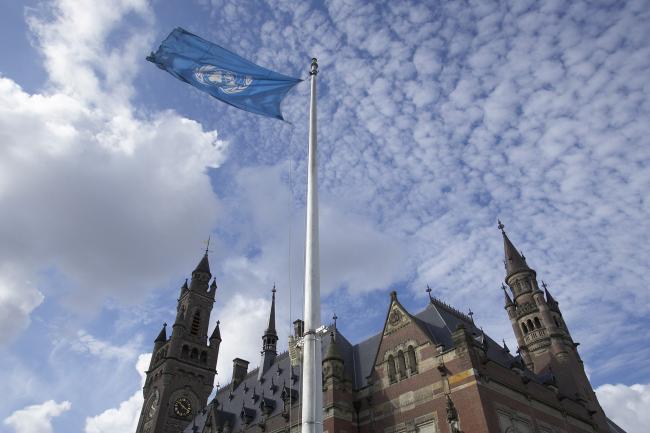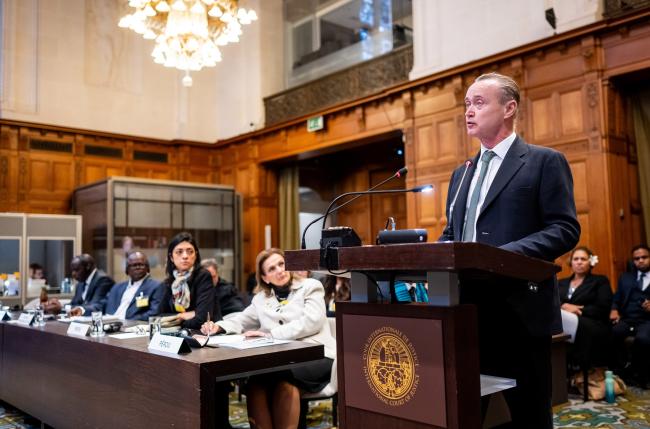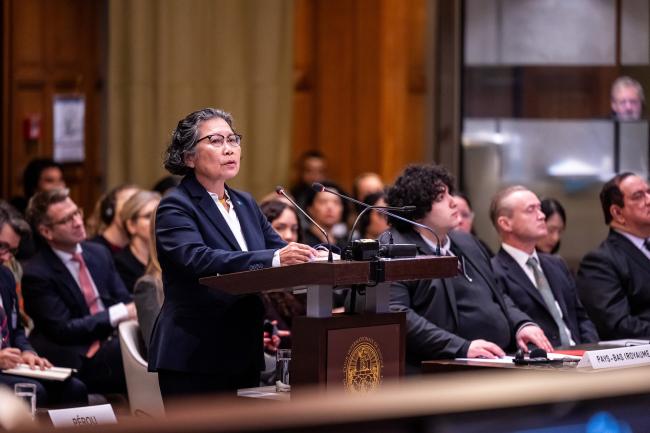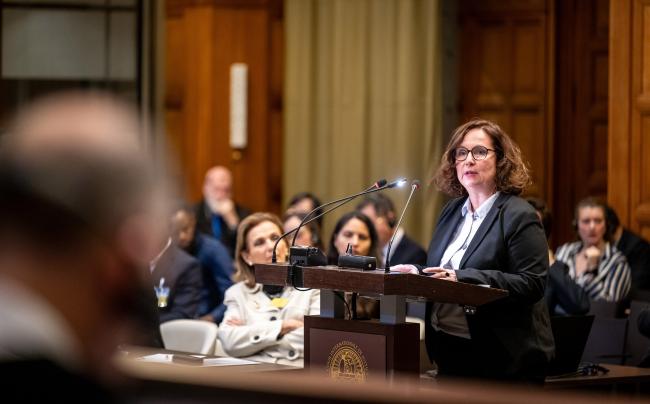Adaptation emerged as a key theme across many statements. Spotlighting the succession of droughts and floods affecting their country, Panama highlighted adaptation limits, a point supported by recent findings of the Intergovernmental Panel on Climate Change. The Netherlands recalled their own experience fighting against submersion and reminded the Court that greater levels of mitigation now will reduce adaptation needs in the future.
Want to dig deeper into today's statements? Read the full Earth Negotiations Bulletin daily report.
The Dominican Republic emphasized that the Ocean has so far absorbed a significant portion of excess heat that would have otherwise further contributed to warming the atmosphere. They underscored that this process contributes to sea-level rise and ocean acidification, threatening marine ecosystems and food webs.
“The Ocean that sustains us will become a force of destruction. Our children stand to inherit a country that no longer reflects the stories and values of our ancestors,” bemoaned Palau. A youth representative taking the floor for the Netherlands highlighted obligations under the Convention on the Rights of the Child as well as States’ responsibility to prevent child mortality from climate impacts. Saint Lucia evoked the Ocean’s “dark storm,” noting that while the sea once carried their ancestors and holds their tribal memory, it now rises with an unforgiving tide, threatening to erase the legacy owed to future generations.
The Democratic Republic of the Congo invited the judges to break up the traditional distinction between developed and developing countries, taking into account the evolving characteristics of emerging economies in particular, and clarifying that all major emitters incur legal responsibilities, “whoever they may be.” Peru pointed to the International Oil Pollution Compensation Funds as an example of reparation mechanisms.
Another issue highlighted by several speakers throughout the day was that of climate-related displacement. Palau emphasized that internal, landward displacement creates additional pressure on biodiversity in the areas where displaced people resettle. The Netherlands lamented that no adequate legal protection is currently provided to climate-displaced persons and called for addressing the matter in the context of the climate change negotiations. Peru urged the Court to pay due account to the risks faced by people in vulnerable situations, such as refugees and internally displaced persons. Portugal asserted that States might have a duty to offer temporary or permanent residence and to coordinate to find durable solutions, considering that sea-level rise may make it impossible for displaced persons to return to their original location.
To receive free coverage of global environmental events delivered to your inbox, subscribe to the ENB Update newsletter.
















